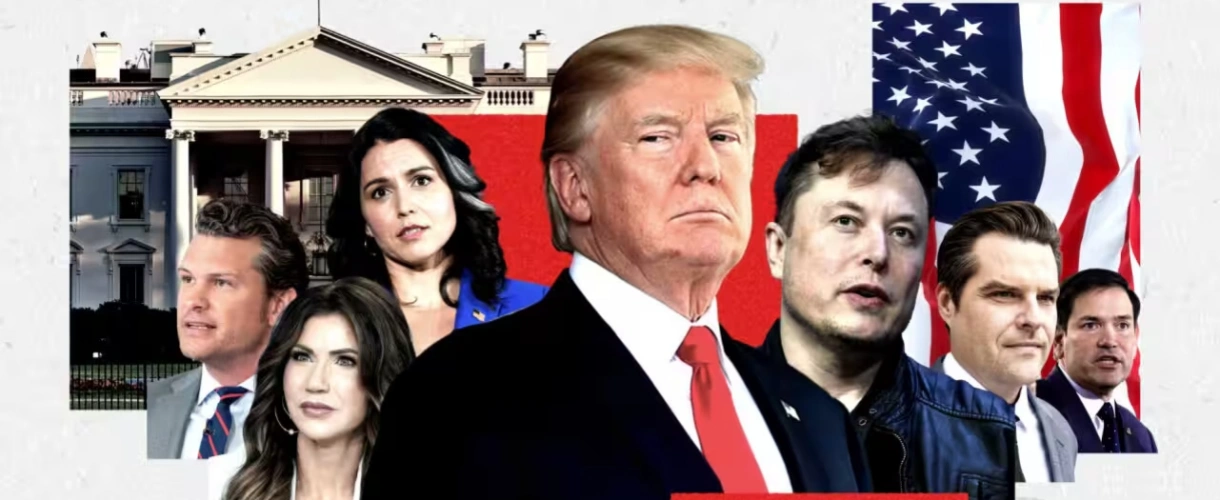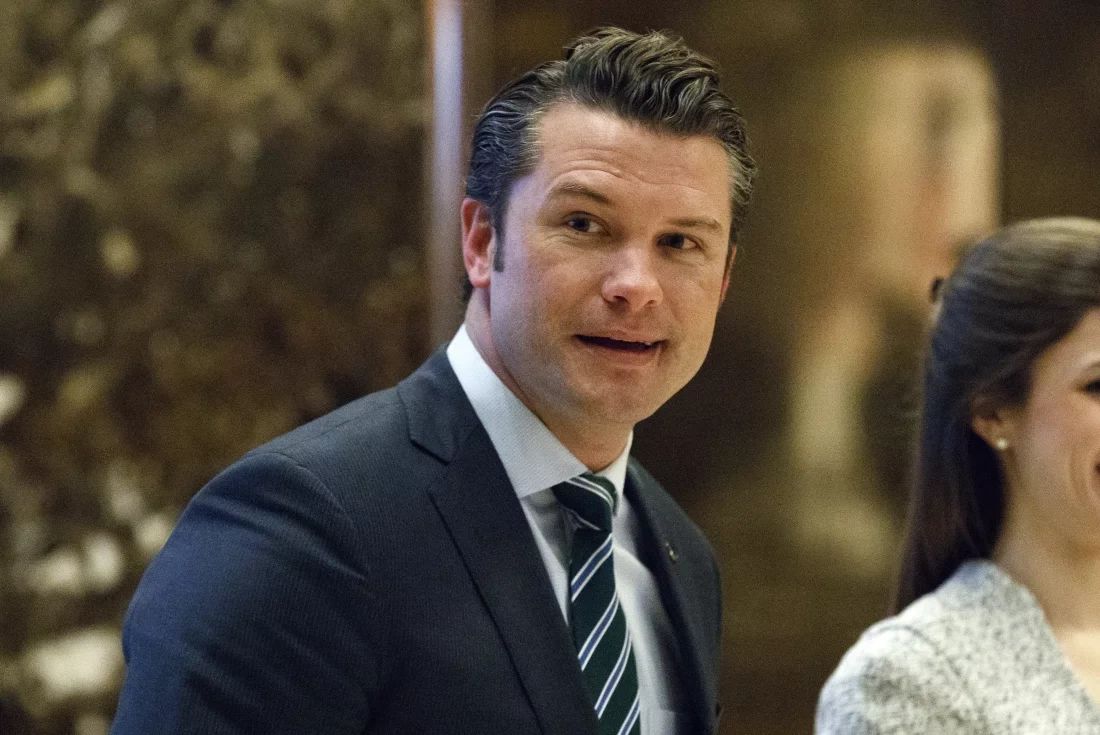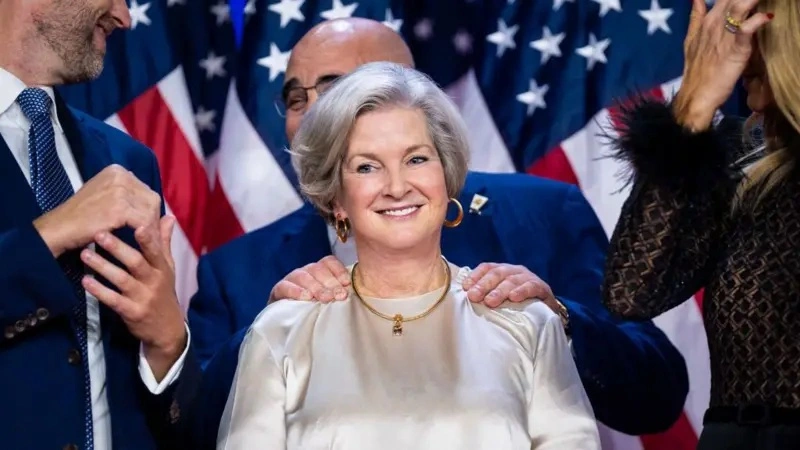Reckless! – Chinese Scholar on Trump’s Cabinet Picks

After Donald Trump was re-elected as the president of the United States, he steadily announced his cabinet picks, catching the eyes around the world. Trump has created a new agency, the Department of Government Efficiency (DOGE) for Elon Musk, who previously supported Trump in a high-stakes gamble, sparking widespread debates. There’s much discussion about what role Musk might play in such a position, how he might approach his work, and what impact he could have.

Pete Hegseth, a Fox News host with military experience but a background primarily in junior officer roles in the U.S. Army, has been nominated for a potential future position as Secretary of Defense, also sparking controversy.

All attention is now focused on the cabinet picks. Before diving into an analysis of these nominations, it’s worth noting something important: the dense wave of announcements about these appointments is closely tied to, or perhaps has a subtle connection with, another piece of information.
Trump’s Typical Focus Guidance Trick
After Trump was elected, he made several nominations and then did something else—he reportedly called Russian President Vladimir Putin. At least, his team used certain sources to inform mainstream outlets like The Washington Post and Reuters, suggesting that Trump had already spoken with Putin and discussed plans related to his biggest policy promise: ending the Russia-Ukraine conflict within 24 hours of taking office. However, the situation took a dramatic turn when the Kremlin issued a rare and direct denial.
While observers eagerly speculated on how Trump might respond, the news emerging from Mar-a-Lago—regarded by some as a power hub akin to “Winterfell” or “King’s Landing” in Game of Thrones—did not include any direct statements addressing the Russia-Ukraine conflict or Putin’s sharp rebuff. Instead, a series of dramatic and impactful announcements stole the spotlight, particularly the establishment of the “Department of Government Efficiency” and other key cabinet picks.

From an observational standpoint, if members of Trump’s team had not leaked to the media that he had spoken with Putin, no one would have known that Trump had possibly faced a setback. This reflects a quintessential Trump diplomatic or policy style: he consistently tries to direct your attention, guiding it where he wants it to go. By steering your focus, he shapes the message or perception he aims to convey, maximizing the image of his capabilities and highlighting his strengths. He works to ensure that you don’t see his failures, or even recognize that he has ever encountered any, ultimately crafting and promoting his idealized persona.
A Brief Introduction to the U.S. President’s Cabinet
The U.S. Constitution clearly states that, within the framework of the separation of powers, the president exercises executive authority and has the right to enlist others to help him, as he is not a deity. The people who assist him are generally divided into two groups. One group is within the White House itself, including his office staff, chief of staff, and those who work closely with the president, forming what is known as the Executive Office of the President (EOP).
The largest office under the EOP is likely the Office of Management and Budget (OMB). As the name suggests, its role is to oversee staffing and review budgets. The people working in the OMB are directly involved with the president, providing support and services on a day-to-day basis. Because of their close working relationship with the president, these appointments do not require Senate confirmation.
At the same time, because the nation’s affairs are vast, the president has the authority to appoint specialized individuals to oversee specific departments, such as handling military issues, foreign diplomacy, business practices, trade, commerce, and finance. This is where the concept of “departments” comes into play. These ministerial-level officials collectively form the “President’s Cabinet,” often referred to simply as “the Cabinet.” These Cabinet members, as politically appointed officials at the ministerial level, are required to undergo confirmation hearings in the Senate.
Trump’s Principle for His Second Term: Loyalty First
Trump has made it clear that he expects the Senate to provide a mechanism for making appointments during its recess, allowing his nominations to be confirmed even when the Senate is not in session. Of course, according to subsequent procedures, once the Senate reconvenes, the appointments still need to go through the appropriate process. However, Trump’s point is that his nominations should not be obstructed.
From his appointments this time, we can discern a few key points: First, Trump has clearly demonstrated a core lesson or experience he learned during his first term: he firmly believes that the people he appointed must be reliable, with loyalty as the primary requirement. The measure of loyalty? It’s determined by their attitude toward the Democratic Party and, most importantly, their attitude toward Trump himself.
Trump has continued to firmly believe that he did not actually lose and regrets leaving the White House in 2020. Using his own words, the standard for testing loyalty is whether during the four years he was away, individuals stood steadfastly by him on key issues, whether they accepted the view that the 2020 presidential election was “stolen” by the Democrats, and whether they defended Trump resolutely on this major, consequential issue in significant public forums.
When the Democrats initiated legal actions against Trump, the measure of loyalty became whether individuals defended him in each major case, particularly the one involving classified national documents. This includes whether they offered strong defense based on a firm belief in Trump and loyalty to him and whether they publicly expressed their support or viewpoints.
Additionally, throughout the 2024 presidential election process, the test of loyalty is whether they provided substantial help to Trump, gave unwavering political backing, and offered solid economic support.
If individuals meet these criteria, they will earn Trump’s admiration and be appointed. Based on the current appointments, these individuals can generally be divided into three categories: The first category is the loyal, hardworking employees, like White House Chief of Staff Susie Wiles. These are people who have diligently worked behind the scenes for a long time, earning Trump’s trust and forming a strong working relationship with him. They are also capable of filling in gaps in Trump’s skill set, but they are never arrogant or seek to steal the spotlight in the media or from Trump.

The second category includes those in Cabinet-level positions, with Pete Hegseth, a former Fox News host, being a prime example of this. Trump appointed him as Secretary of Defense at Truth Media. For Trump, loyalty is paramount, and ideally, the person has little to no expertise. What he seeks is a blank slate and a sounding board. Trump-style conservatives often interpret the Constitution in a literal, word-for-word manner, believing that all matters ultimately fall under the president’s domain. Trump’s approach is simple: “Nobody knows anything better than me. My team doesn’t need to be experts, I’m the one who knows. What do my team members need? Loyalty and obedience.”
Loyalty means standing firmly by his side politically, being bound to him—you cannot jump ship or stab him in the back. Not understanding the business is seen as an advantage, not a weakness. What does it mean to lack expertise or have limited experience? It means you have no roots in the system, and there’s no possibility of you betraying him. You don’t need to ask questions or know everything; he will tell you how to do it, and all you need to do is execute.
Understand and execute as instructed; if you don’t understand, you’ll understand through execution. If the execution is done well, it means Trump was right. If it’s done poorly, it means the execution was flawed. This logic is powerful, and many people in history have used it, though the outcomes often weren’t great. But Trump is different—he believes he is the chosen one, and who knows, maybe he’ll succeed after all.
DOGE’s Role and Likely Operation Model
The third category includes figures like Elon Musk and the DOGE. Although the name contains the word “department,” it may not actually be a department; it’s more likely to function as a commission or a task force. The most probable way it will operate is under the EOP, or in close collaboration with the OMB. While these initiatives may seem fragmented or like a “strategic salad,” they are not merely a jumble of words—they are, in fact, grounded in logic. Trump has repeatedly mentioned the “unstable government efficiency,” observing and auditing it from outside the traditional government framework.
Elon Musk has stated that their goal is to identify and expose the “stupid budgets,” “stupid arrangements,” and “stupid people,” ranking them and posting the results online for public condemnation, in order to highlight just how dysfunctional the government is. So, if things go as expected, this “department” will likely be an external commission focused primarily on investigative work and holding hearings. It’s possible that all 15 federal agencies will undergo such investigations and hearings, resulting in a report that identifies problems within each department. While this sounds like a massive undertaking, the truth is that the Government Accountability Office (GAO) has always been doing this type of work—auditing the functions of government agencies, assessing waste, and identifying areas for efficiency improvement. The difference now is that, while such audits used to be in a “better than nothing” state, Trump is now openly aiming to “drain the swamp” in this manner.
To put it more bluntly, the “Department of Government Efficiency” that Musk represents is likely to spark an unintentional political movement in Washington, potentially turning into a storm that sweeps across all 15 federal agencies. An interesting point is that Trump has brought together Indian-American Republican Vivek Ramaswamy (whom he faced off against during the presidential campaign) and Musk. Here’s the thing: unless Ramaswamy decides not to run for Congress, once this new department is established, he won’t be able to continue holding a congressional seat. He can’t hold two positions at the same time.

If the so-called “Department of Government Efficiency” were a formal administrative department like the Department of Defense or the Department of Treasury, Ramaswamy would have to leave the legislative branch to take a role in the executive branch. However, if it functions as a commission, there wouldn’t be any issue. If the department’s primary operation involves congressional hearings or committee investigations, Ramaswamy’s position as a member of Congress could actually enhance his effectiveness in that role, giving him a unique advantage in influencing the process.
Objectively speaking, the issue most likely to create enemies is the government efficiency audit. On one hand, Musk could become the second center of power within the team, after Trump. On the other hand, a young Indian-American congressman, who showed significant potential during the primaries, has also been pushed to the forefront. It’s well known that Indian-Americans often demonstrate unique strengths in navigating internal power dynamics within government organizations, giving them a relative advantage. This arrangement is quite intriguing and certainly worth closer observation as it unfolds.
Trump’s Second Term Will Bring About Uncertainty Beyond Imagination
Overall, the defining characteristic of Trump’s second term seems to be a bold, aggressive approach, encapsulated in a large, capitalized “recklessness.” In terms of personnel appointments, choosing candidates, and expressing his ideas, we see a Trump who is driven by a sense of urgency, believing that time is of the essence. He seems to be streaking, confidently convinced that he is on the only correct and effective path to save the U.S. empire and preserve its global dominance.
Of course, we can also see that the media’s portrayal of an idealized version of Trump’s second term—such as the myth that he has a fully formed team—has been shattered. In reality, Trump doesn’t have a cohesive team. He struggles to find individuals who are both politically trustworthy and capable enough to handle complex issues at the Cabinet level within federal administration. People with those qualities are extremely rare. This problem was already evident in his first term, though at that time, one could argue he was a political outsider. Now, we see Washington elites continuing to distance themselves from Trump in various ways, and the consequences of this are highly unpredictable and uncertain.
It won’t be long before these impacts unfold in dramatic and visually striking ways, and it will be worth paying close attention to. But we must remember, at all times, not to panic or be overwhelmed by the media fragments. These patterns won’t change just because it’s Trump—if you don’t believe it, just wait and see.




Anonymous
Your assessment that Trump values loyal but ignorant subordinates over experienced personnel is belied by the fact that Trump is not merely picking names out of a hat. His first Cabinet consisted of people selected purely for skill, with loyalty second. Nearly every single one of these betrayed him, further crippling his regime. This time, Trump will choose a second-tier but loyal subordinate over a top of the line but unreliable adviser. Time will prove the wisdom of the strategy. What seems in the moment like narcissistic chaos will appear to historians as 4D chess.
Anonymous
Unlike the Chinese government, the American government is highly corrupt, and has been for decades. In 2020 there were 130 million registered voters, 74 million of which were credited to Trump. 130-74=56. Yet Joe Biden received not 56 million but 81 million votes, 25 million more than existed at the time. Trump’s mass deportations are aimed at making sure that the number of registered voters and the number of votes cast reconcile in future elections.
Anonymous
Thank you for your analysis, fascinating insights. Trump is no angel, or saviour but surely anything is better than Biden
Anonymous
Biden already started world War 3